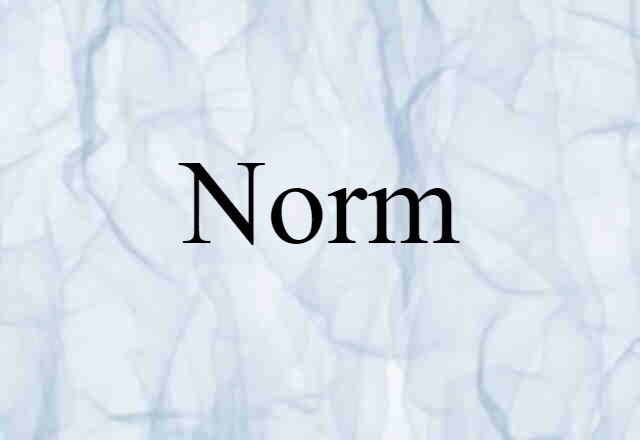- a standard, model, or pattern.
- general level or average: Two cars per family is the norm in most suburban communities.
- a behavior pattern or trait considered typical of a particular social group:The patients regained the norms of everyday life after their hospitalization.
- a pattern or standard of behavior expected of each member of a social group: In many countries, cultural norms result in women bearing primary responsibility for childcare.
- Education.
- a designated standard of average performance of people of a given age, background, etc.
- a standard based on the past average performance of a given individual.
- Mathematics.
- a real-valued, nonnegative function whose domain is a vector space, with properties such that the function of a vector is zero only when the vector is zero, the function of a scalar times a vector is equal to the absolute value of the scalar times the function of the vector, and the function of the sum of two vectors is less than or equal to the sum of the functional values of each vector. The norm of a real number is its absolute value.
- the greatest difference between two successive points of a given partition.
- Norman.
- an average level of achievement or performance, as of a group or person
- a standard of achievement or behaviour that is required, desired, or designated as normal
- an established standard of behaviour shared by members of a social group to which each member is expected to conform
- maths
- the length of a vector expressed as the square root of the sum of the square of its components
- another name for mode (def. 6)
- the theoretical standard mineral composition of an igneous rock
- a stereotype of the unathletic Australian male
- normal
- Norman
















